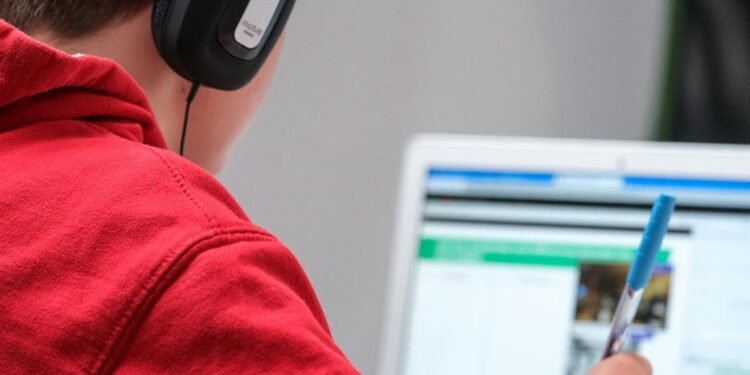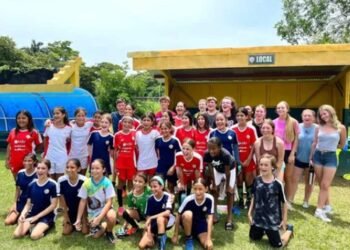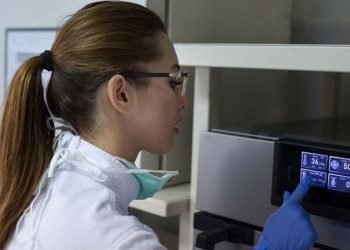The landscape of education is undergoing a profound transformation, primarily driven by the integration of digital technologies. Today, the one-size-fits-all approach to education is being replaced by more dynamic and personalized strategies, which are tailored to meet the unique needs and learning styles of each student. Personalized learning plans are at the forefront of this educational revolution, offering a pathway that promises to enhance student engagement and success significantly.
The Rise of Personalized Learning
Personalized learning tailors educational experiences to individual abilities, interests, and learning styles, thereby optimizing student engagement and outcomes. This approach not only accommodates individual paces and preferences but also integrates students’ skills and future goals, making learning more relevant and motivating. The use of technology in education has accelerated the adoption of personalized learning, with tools and platforms enabling better insights into student performance and more adaptable learning materials.
In this evolving educational landscape, personalized learning plans are gaining traction, fueled by the growing recognition that students benefit from instruction that is tailored to their specific circumstances. Studies have shown that when learning experiences are customized to individual needs, students demonstrate higher levels of comprehension and retention. Platforms like Cambridge Online Tutors are exemplary, offering tailored tutoring that aligns with each student’s personal learning journey, thereby enhancing the educational experience and outcomes. You can visit https://cambridgeonlinetutors.co.uk to find out more about their tutoring services.
Additionally, institutions are increasingly turning to expert services to enhance their outreach and engagement. Companies specialize in crafting tailored strategies to help colleges and universities build brand awareness and drive admissions. Their innovative approaches ensure that educational institutions can effectively communicate their unique value to prospective students in this competitive landscape. To learn more about these services here.
Benefits of Tailored Learning Plans
The advantages of personalized learning plans extend across various dimensions of the educational process. Firstly, they accommodate different learning velocities and styles, ensuring that every student can learn in a manner that suits them best. This inclusivity boosts student morale and engagement, as learners feel more supported and understood in their educational environments.
Moreover, personalized plans significantly enhance learning effectiveness. By aligning educational content with each student’s strengths and weaknesses, these plans ensure that all students, regardless of their starting point, have the best possible chance to succeed. For instance, a student struggling with mathematics might receive additional resources and one-on-one tutoring sessions, which helps them overcome their difficulties in a supportive, non-judgmental environment.
Components of Effective Tailored Learning Plans
Developing an effective tailored learning plan requires a comprehensive approach that includes several key components:
- Assessment Methods: Initial and ongoing assessments are crucial to understand each student’s needs, abilities, and progress. These assessments help in continuously shaping and refining the learning plan to fit the student’s evolving educational needs.
- Adaptive Learning Technologies: These are sophisticated tools that adjust the difficulty level of educational content based on the learner’s performance in real-time. Adaptive technologies are essential for ensuring that the learning process remains challenging enough to keep students engaged, but not so difficult that it becomes frustrating.
- Continuous Feedback: Feedback is a vital component of personalized learning, providing students with insights into their progress and areas for improvement. Effective feedback mechanisms help students stay on track and maintain their motivation throughout their learning journey.
Technological Tools and Resources
The success of personalized learning plans largely depends on the availability and effectiveness of technological tools. Digital platforms provide access to a wide array of resources ranging from interactive learning modules to personalized assessment tools. These technologies not only facilitate a customized learning experience but also allow for scalability, enabling personalized education to reach a broader audience.
Challenges in Implementation
While the benefits of tailored learning plans are significant, several challenges hinder their widespread adoption. One of the most persistent obstacles is the issue of scalability. Personalizing education requires significant resources and individual attention, which can be difficult to provide on a large scale, especially in underfunded or overcrowded educational systems. Moreover, the integration of sophisticated adaptive technologies, which are essential for crafting effective personalized learning environments, often entails substantial financial investment and technical expertise.
Data privacy represents another critical challenge. With the increased reliance on digital platforms and tools that collect extensive amounts of personal and performance data, ensuring the privacy and security of this information is paramount. Educational institutions and any online learning platform must implement solid security measures to protect sensitive student data from unauthorized access or breaches.
Additionally, the digital divide—the gap between those with and without access to modern information and communication technology—can exacerbate educational inequalities. While such learning plans rely heavily on online resources, students without reliable internet access or adequate digital devices may find themselves at a disadvantage. Addressing this issue requires concerted efforts to improve infrastructure and accessibility across all communities.
Integrating Personalized Learning in Traditional and Non-traditional Settings
Despite these challenges, there are numerous examples of successful integration of personalized learning plans in both traditional and non-traditional educational settings. In traditional schools, for instance, teachers are increasingly using blended learning models that combine face-to-face instruction with online activities. These models allow for a more personalized approach by letting students progress at their own pace through the online components.
In non-traditional education sectors such as homeschooling or adult education, these learning plans are even more critical as they cater to a wide variety of learning needs and life circumstances. Online platforms play a crucial role in these settings by providing flexible learning solutions that can be adapted to fit the schedules and specific learning objectives of non-traditional learners.
The Role of Parents and Guardians in Personalized Learning
Parents and guardians also play a vital role in the success of personalized learning plans. Their involvement is crucial in motivating and supporting their children through their educational journeys. By understanding and engaging with the tailored learning plans, parents can help reinforce learning at home and ensure their children take full advantage of the personalized resources available to them. Online tutoring platforms facilitate this involvement by providing parents with regular updates on their child’s progress and offering guidance on how to support their learning outside of formal educational settings.
Conclusion
As we embrace the changes brought about by the digital age, personalized learning plans stand out as a transformative approach to education. They not only cater to individual learning styles and needs but also empower students by giving them control over their educational journeys.
By continuing to innovate and tackle the challenges head-on, the educational community can ensure that personalized learning remains not just a fleeting trend but a fundamental aspect of how we educate future generations. With commitment and creativity, we can cultivate an environment where every learner has the tools and opportunities to succeed.












